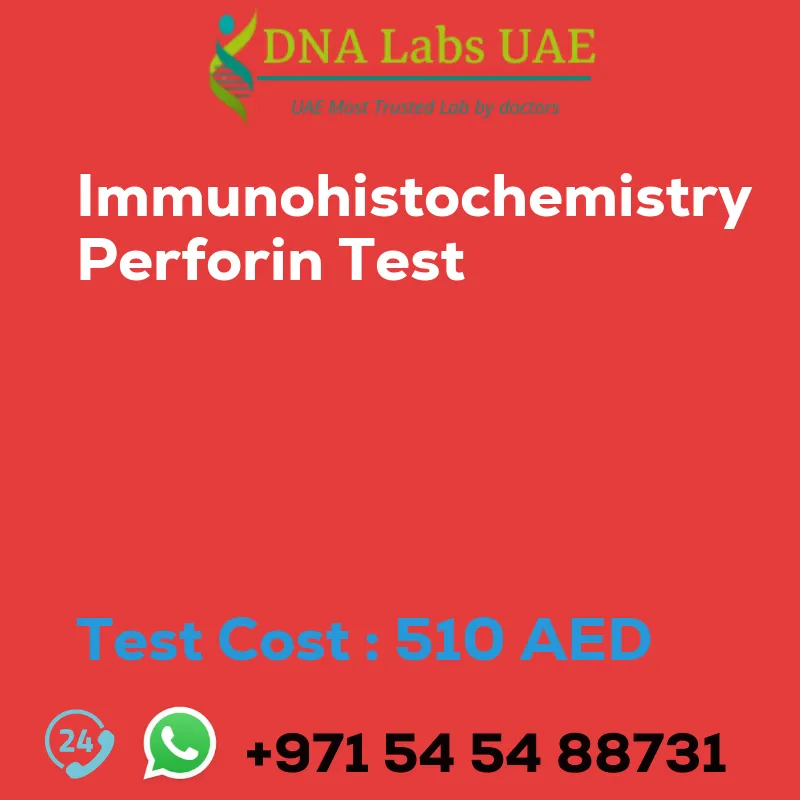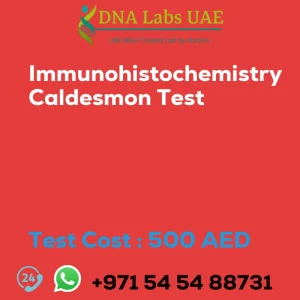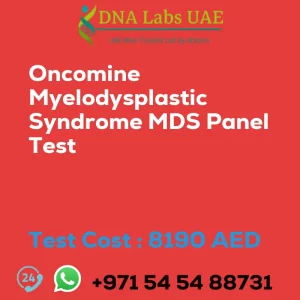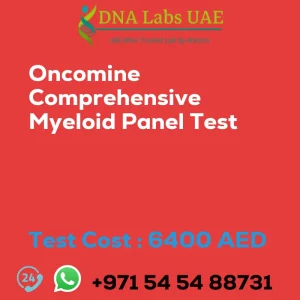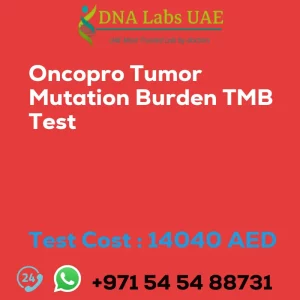IMMUNOHISTOCHEMISTRY PERFORIN Test
At DNA Labs UAE, we offer the IMMUNOHISTOCHEMISTRY PERFORIN Test for the diagnosis of cancer. This laboratory test is used to detect the presence and distribution of perforin protein in tissue samples. Perforin is a protein produced by cytotoxic T cells and natural killer cells, which plays a critical role in immune defense against infected or cancerous cells.
Test Details
The IMMUNOHISTOCHEMISTRY PERFORIN Test involves the use of specific antibodies that bind to perforin protein in tissue sections. These antibodies are labeled with a visible marker, such as a fluorescent dye or an enzyme, which allows the visualization of perforin distribution under a microscope.
The test is typically performed on formalin-fixed, paraffin-embedded tissue samples obtained from biopsies or surgical resections. The tissue sections are first deparaffinized and rehydrated, followed by antigen retrieval to expose the perforin protein. The sections are then incubated with the primary antibody against perforin, which binds specifically to the protein of interest. After washing off unbound antibodies, a secondary antibody is applied, which recognizes the primary antibody and carries a visible marker. Finally, the sections are visualized under a microscope to assess the presence and distribution of perforin in the tissue.
The IMMUNOHISTOCHEMISTRY PERFORIN Test is commonly used in research and clinical settings to study immune responses, particularly in diseases involving cytotoxic T cell or natural killer cell activity, such as viral infections, autoimmune diseases, and cancer. The test can provide valuable information about the presence and localization of perforin in specific tissue compartments, helping to understand the role of perforin in immune surveillance and disease progression.
It is important to note that the interpretation of IMMUNOHISTOCHEMISTRY PERFORIN Test results should be done by a trained pathologist or laboratory specialist, as the staining patterns and intensity can vary depending on the tissue type and disease condition.
Test Cost
The cost of the IMMUNOHISTOCHEMISTRY PERFORIN Test at DNA Labs UAE is AED 510.0.
Symptoms and Diagnosis
The IMMUNOHISTOCHEMISTRY PERFORIN Test is recommended by oncologists for patients experiencing symptoms related to cytotoxic T cell or natural killer cell activity. These symptoms may include viral infections, autoimmune diseases, and cancer. To diagnose these conditions, a biopsy or surgical resection is required to obtain tissue samples for testing.
How to Submit Samples
To submit samples for the IMMUNOHISTOCHEMISTRY PERFORIN Test, please follow these instructions:
- Submit tumor tissue in 10% Formal-saline OR Formalin fixed paraffin embedded block.
- Ship the samples at room temperature.
- Provide a copy of the Histopathology report, site of biopsy, and clinical history.
Report Delivery
The report for the IMMUNOHISTOCHEMISTRY PERFORIN Test will be delivered as follows:
- Sample: Daily by 6 pm
- Report Block: 5 days
- Tissue Biopsy: 5 days
- Tissue large complex: 7 days
Test Department and Doctor
The IMMUNOHISTOCHEMISTRY PERFORIN Test is conducted in the Histology department at DNA Labs UAE. The test is recommended by oncologists for patients suspected of having cytotoxic T cell or natural killer cell activity.
Pre Test Information
Prior to the IMMUNOHISTOCHEMISTRY PERFORIN Test, please provide a copy of the Histopathology report, site of biopsy, and clinical history. This information is crucial for accurate diagnosis and interpretation of test results.
For more information or to schedule an appointment, please contact our clinic.
| Test Name | IMMUNOHISTOCHEMISTRY PERFORIN Test |
|---|---|
| Components | |
| Price | 510.0 AED |
| Sample Condition | Submit tumor tissue in 10% Formal-saline OR Formalin fixed paraffin embedded block. Ship at room temperature. Provide a copy of the Histopathology report, Site of biopsy and Clinical history. |
| Report Delivery | Sample Daily by 6 pm; Report Block: 5 days Tissue Biopsy: 5 days Tissue large complex : 7 days |
| Method | Immunohistochemistry |
| Test type | Cancer |
| Doctor | Oncologist |
| Test Department: | HISTOLOGY |
| Pre Test Information | Provide a copy of the Histopathology report, Site of biopsy and Clinical history. |
| Test Details |
Immunohistochemistry (IHC) Perforin test is a laboratory test used to detect the presence and distribution of perforin protein in tissue samples. Perforin is a protein produced by cytotoxic T cells and natural killer cells, which plays a critical role in immune defense against infected or cancerous cells. The IHC Perforin test involves the use of specific antibodies that bind to perforin protein in tissue sections. These antibodies are labeled with a visible marker, such as a fluorescent dye or an enzyme, which allows the visualization of perforin distribution under a microscope. The test is typically performed on formalin-fixed, paraffin-embedded tissue samples obtained from biopsies or surgical resections. The tissue sections are first deparaffinized and rehydrated, followed by antigen retrieval to expose the perforin protein. The sections are then incubated with the primary antibody against perforin, which binds specifically to the protein of interest. After washing off unbound antibodies, a secondary antibody is applied, which recognizes the primary antibody and carries a visible marker. Finally, the sections are visualized under a microscope to assess the presence and distribution of perforin in the tissue. The IHC Perforin test is commonly used in research and clinical settings to study immune responses, particularly in diseases involving cytotoxic T cell or natural killer cell activity, such as viral infections, autoimmune diseases, and cancer. The test can provide valuable information about the presence and localization of perforin in specific tissue compartments, helping to understand the role of perforin in immune surveillance and disease progression. It is important to note that the interpretation of IHC Perforin test results should be done by a trained pathologist or laboratory specialist, as the staining patterns and intensity can vary depending on the tissue type and disease condition. |

